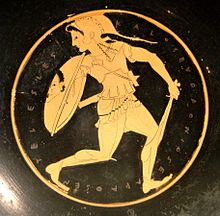[contextly_auto_sidebar id=”TUHr64z55mkmhkosqXugONtslgtzjq1a”]
IT’S hard to know what an author or publisher should do when faced with Amazon’s dominance of the market: It’s hard to withdraw from a distributor who handles so large a portion of book (especially e-book) sales. But just as several small record labels have pulled their music from Spotify and other streaming services, the Oklahoma-based Educational Development Corporation, decided enough was enough.
A Slate story, “How One Publisher Ditched Amazon and Succeeded,” looks at what led Randall White to back out.
“Remember Butch Cassidy and the Sundance Kid, when they’re on the cliff and getting ready to jump and one guy says, ‘I can’t swim?’” asks the folksy 72-year old, referring to the classic Robert Redford–Paul Newman film. “And the other guy says, ‘What are you worried about? The fall’s going to kill you.’”
That was essentially the situation White found himself in, watching helplessly as EDC’s revenues were steadily eaten away by competition from world’s most successful—and most aggressive—online retailer. “We were selling more to Amazon but our business kept declining,” he says, describing a dip of some 40 percent in one division alone. “I’m thinking, ‘What can I do here? This is crazy.’ You had to fix it, or you’re going to die anyway.”
It’s financially difficult — maybe impossible — for larger publishers to do this. The story concludes by wondering if EDC is anomalous or if other publishers can make a similar move. “The more important lesson may be to align themselves more aggressively the few local bookstores that still remain in business—probably the only entities more threatened by Amazon than publishers are. A strong alliance accompanied by a noisy publicity push might at least put them in a more advantageous negotiating position the next time Amazon comes around looking for better terms.”
We’ll keep watching.


I began selling my Lorenzo Press books with Amazon in 1995 and have had a pretty good relationship with them ever since. However, I did consider breaking away from them for a while, when B&N, Borders, and independent stores were buying books from independent publishers whose authors gave in-store readings. But when these outlets switched to a consignment-only policy it didn’t seem like a good idea to leave Amazon. Most of my titles were print books until I moved to Mexico, but now the cost of shipping books out of the country is so prohibitive that I’ve been using Amazon’s CreateSpace. Not ideal, but certainly acceptable.